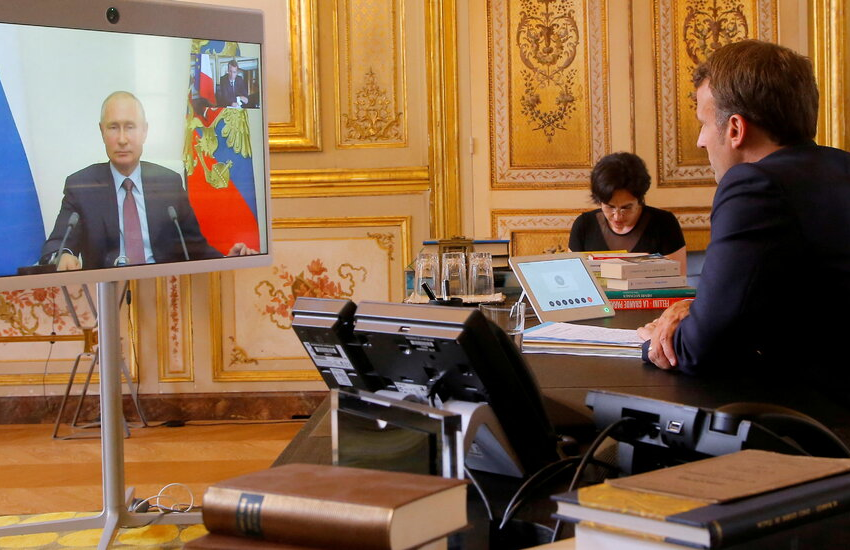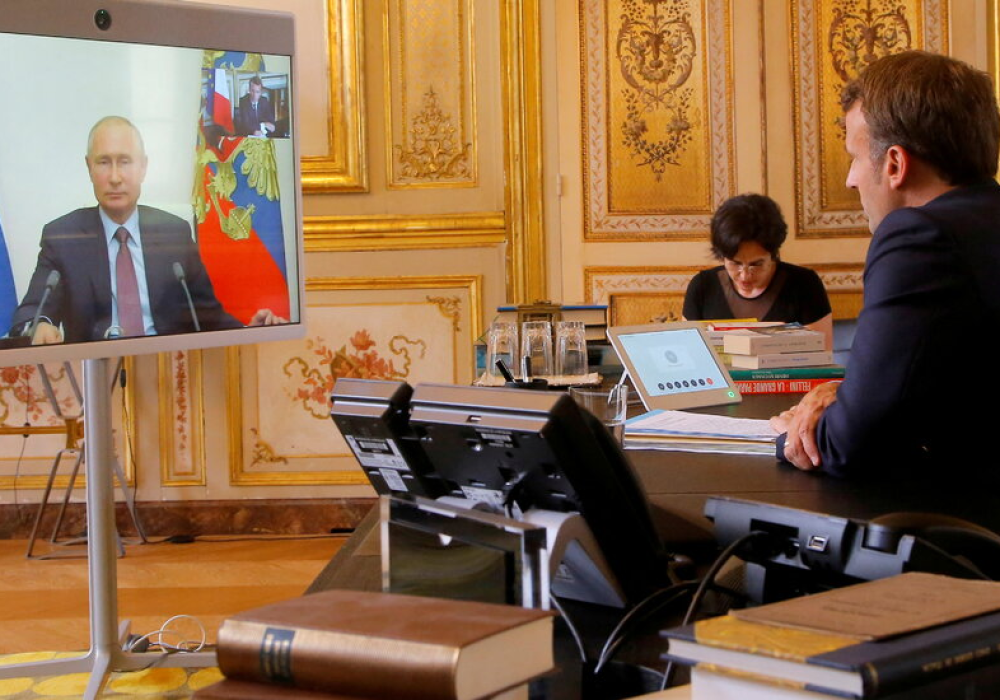
PARIS — Even as the Pentagon warned that Russia continues to deploy more forces to its border with Ukraine, Russia’s foreign minister suggested that there may be room to negotiate with the United States on at least on some issues.
At the same time, President Emmanuel Macron of France held a phone call with President Vladimir V. Putin of Russia on Friday morning in the hopes of easing the escalating tensions in Europe.
The Russian foreign minister, Sergey V. Lavrov, said that the United States’ recent written response to its security demands contained “a kernel of rationality” for a possible compromise on issues like missile deployments and military exercises.
“If it depends on Russia, then there will be no war. We don’t want wars. But we also won’t allow our interests to be rudely trampled, to be ignored,” Mr. Lavrov said in an interview with Russian radio.
However, Russia has put a broad set of issues on the table — essentially calling for a reshaping of the post-Cold War security arrangements in Europe and a retreat of NATO forces from Eastern Europe. That is a nonstarter for the United States and its Western allies. Western officials say that Russia’s public statements, often contradictory, do not square with the actions it has taken to poise it military menacingly on Ukraine’s borders to the north, south and east.
So, the situation remained one of both contradiction and confrontation.
Military forces continued to surround Ukraine en masse. The Pentagon said that in the past 24 hours, more Russian forces were being moved into the region. Meanwhile, the United States and its European allies continued to send arms to Ukraine as NATO stepped up its defensive positions in Eastern Europe.
At the center of the maelstrom, in Ukraine, the government urged the public to remain calm, played down the immediacy of the threat and expressed concern about the heightened messaging from both the West and Russia.
As Ukrainian soldiers dug into trenches along the snow-covered eastern front, children were out sledding in Kyiv, the capital. Most people went about their daily lives.
Neither Paris nor Berlin see the threat of a Russian invasion of Ukraine with the same urgency as Washington or the countries closer to Ukraine, including Poland and the Baltic States.
France has insisted in recent days on the need to “de-escalate” the crisis to avoid stumbling into a “self-fulfilling” conflict, fueled by misperceptions and exaggerated speech. But it has also stood firmly with its NATO allies in the standoff with Russia, offering, for instance, to send troops to Romania.

Other military or air installations
Russia has begun moving
troops, armor and advanced
antiaircraft systems into
Belarus, a close ally.
Around 130,000 Russian troops
have been deployed near the
Ukrainian border.
Forces deployed north of
Ukraine could stretch
the country’s forces thin and
threaten its capital, Kyiv.
Approximate line
separating Ukrainian and
Russian-backed forces.
Nearly 20,000 troops are near
two breakaway provinces, where
Ukraine has been locked in a
grinding war with Russian-backed
separatists since 2014.

Other military or air installations
Around 130,000 Russian troops
have been deployed near the
Ukrainian border.
Russia has begun moving
troops, armor and advanced
antiaircraft systems into
Belarus, a close ally.
Approximate line
separating Ukrainian and
Russian-backed forces.
Nearly 20,000 troops are near two
breakaway provinces, where Ukraine
has been locked in a grinding
war with Russian-backed
separatists since 2014.

Around 130,000 Russian troops
have been deployed near the
Ukrainian border.
Russia has begun moving
troops, armor and advanced
antiaircraft systems into
Belarus, a close ally.
Approximate line
separating Ukrainian and
Russian-backed forces.
Nearly 20,000 troops are near two
breakaway provinces, where Ukraine
has been locked in a grinding
war with Russian-backed
separatists since 2014.

Around 130,000 Russian troops
have been deployed near the
Ukrainian border.
Russia has begun moving
troops, armor and advanced
antiaircraft systems into
Belarus, a close ally.
Nearly 20,000 troops are near
two breakaway provinces, where
Ukraine has been locked in a
grinding war with Russian-backed
separatists since 2014.

Note: Numbers for newly arrived troops to Belarus, parts of Crimea, and western Russia are rough estimates.
Mr. Macron has long advocated a more conciliatory approach to Russia than the United States or some of his European allies, and he has repeatedly stressed the need to keep dialogue with Moscow firm but open.
He has also insisted that France and the European Union needed to act more independently from the United States on the international stage, and he is eager to spearhead European efforts to fix the continent’s own problems.
Mr. Putin has not commented publicly on the crisis since before Christmas, leaving the West to largely speculate about his intentions as Russia forces amass in a menacing fashion all around Ukraine.
Mr. Biden and Mr. Putin have not spoken one-on-one since a tense “virtual summit” in early December. The Biden administration called a meeting of the United Nations Security Council on Monday, which could make for a face-to-face debate on Ukraine between the United States and Russia.
Mr. Macron’s attempts to reset relations with Russia have stumbled and his enthusiasm for a rapprochement with Mr. Putin has waned in recent years — especially after Aleksei A. Navalny, Mr. Putin’s most prominent opponent, was poisoned in an operation later revealed to be orchestrated by the Kremlin.










